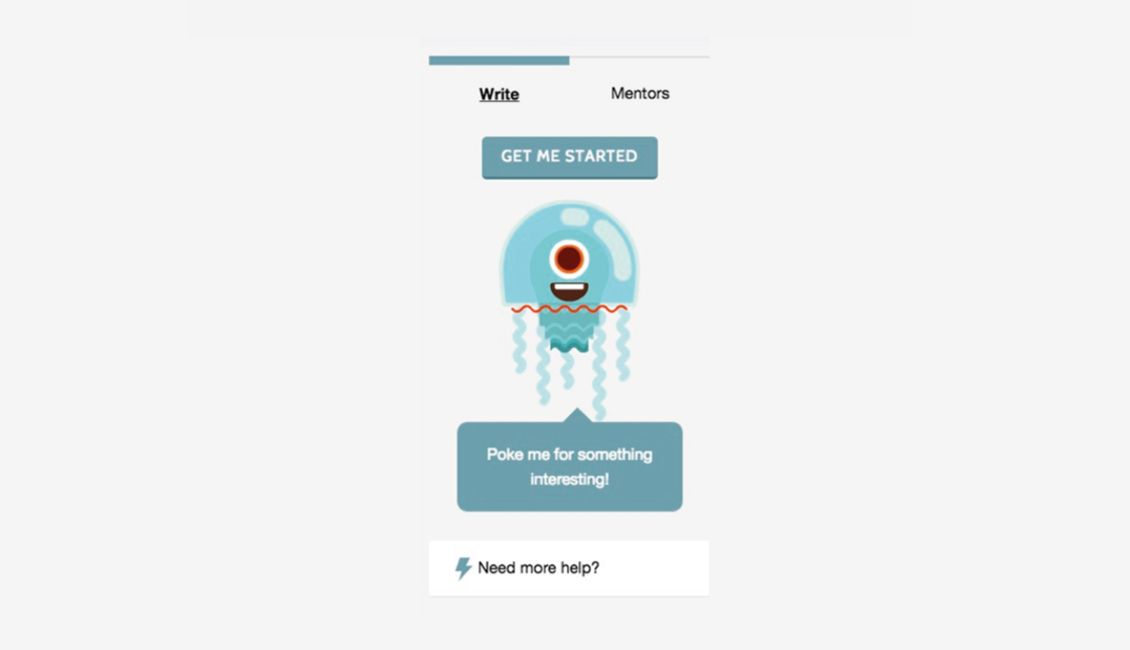The Inspirational Jellyfish
In 2015, we led a digital experiment to see whether we could create a writing experience online, that mirrored the experience of children who visited the Ministry.
In partnership with the UCL Institute of Education and The Workshop, and with the help of 150 secondary students, we prototyped an e-mentoring platform in schools.
The whole project was developed in collaboration with year 7 students, who helped design the online experience. One early concept that we took from sketch to reality was the Inspirational Jellyfish, a character who you could poke if you got stuck. It would never answer your question but always say something inspiring.

Children helped test three stages of prototype, the first using paper and pencil to replicate what the technology would do, the second using pre-existing digital tools, and the final stage piloting our ‘magic paper’, the Story Engine. On the website, students could generate ideas for character, setting and plot, and receive individual support from a writing mentor as well as all kinds of help and support like the jellyfish, and our bank of hints and advice.

They were awarded a host of badges for achievements in different areas of writing. When they had finished a story, they could submit it to an editor for final comments and online publishing.

Students from schools across London, and in Rotherham and Brighton took part in the pilot, which was evaluated by Professor Andrew Burn and Dr Steve Connolly from UCL Institute of Education. The team tested the potential of allowing students, as with our real world workshops, to take the lead in setting their own pace and outcomes. It also offered remote, individual contact with trained mentors.
Overall, the research showed that the writers really enjoyed the freedom of the online writing space. The research also showed that the mentoring process was a valuable enrichment of the writing process. Mentors offered advice ranging from pep talks to spelling and punctuation hints, to help writing and editing progress. In some cases, Story Engine appears to have supported learning progression over time by contrast with earlier pieces of writing in students’ English work.

For more insights from the project team please visit the Digital R&D Fund website, where you can also download the final research report.






